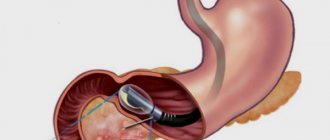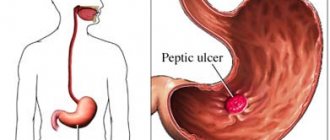What are gastrointestinal problems?
Frequently recurring pain and spasms in the abdomen, stool disturbances, flatulence (gas formation, bloating and rumbling) can be manifestations of various problems of the gastrointestinal tract (GIT). Gastrointestinal diseases are usually divided into functional and organic disorders1:
- Functional disorders are quite common. As you can guess from the name, with this type of disorder the function of the gastrointestinal tract is disrupted. Functional disorders are characterized by symptoms such as pain and cramping in the abdomen, stool disturbances, flatulence (gas formation, bloating and rumbling). In most cases, such disorders are very unpleasant and greatly impair daily life.
- Organic disorders imply a change in the organ itself and its structure due to past diseases. Such violations occur much less frequently. Organic diseases that can cause disruption of the gastrointestinal tract include: gastritis, gastric ulcer, tumor, diabetes, hepatitis, gallbladder disease, various complications after surgery. Organic disorders require a thorough approach to treatment.
If we talk about functional disorders, which are much more common than organic ones, the causes in many cases are associated with impaired intestinal motor function1.
What can affect intestinal motility? There are several factors: for example, poor diet, overwork and stress.
It would seem, how can our emotional state affect the functioning of the intestines? But there really is a connection between the psychological and physical state. If a person is under constant stress, works a lot and gets little rest, the digestive system begins to react to overwork2. In turn, malfunctions of the digestive organs are often accompanied by a deterioration in general well-being, emotional disturbances, insomnia, irritability, anxiety and decreased physical activity.
One of the most common gastrointestinal problems is irritable bowel disease. Abdominal pain and spasms, stool disturbances, flatulence (gas formation, bloating and rumbling) are manifestations of a similar condition caused by a malfunction of the intestines due to spasms of smooth muscles. Such a failure is a consequence of a change in the rhythm of contraction of the intestinal walls. Depending on how the rhythm changes, diarrhea or constipation may occur. Slowing the movement of intestinal contents leads to constipation, and speeding it up leads to diarrhea.
Thus, the irritable intestine is a spasmodic organ whose functioning is disrupted. At the same time, there are no structural changes in the structure of the organ - abscesses, ulcers or more serious problems; the organ itself remains in order.
Endocrine system and gastrointestinal tract
What is important?
To create hormones, components are needed, which the corresponding organ (pancreas, thyroid, ovaries, pituitary gland, etc.) must receive through the gastrointestinal tract.
For example, insulin consists of two amino acid chains. One has 21 amino acids, the other has 30 amino acids. And these chains are connected by two disulfide bridges (contain two sulfur atoms) and the third such bridge connects “far” apart amino acids of the short A-chain (








